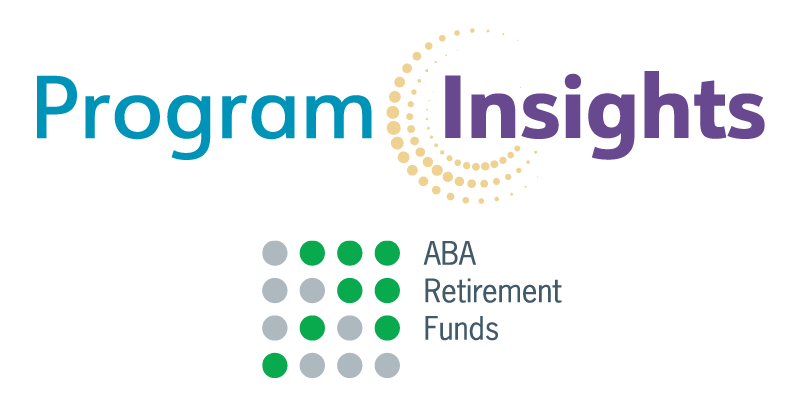
As the world spins faster with change and as technology becomes more sophisticated, cyber threats are increasingly on the rise.
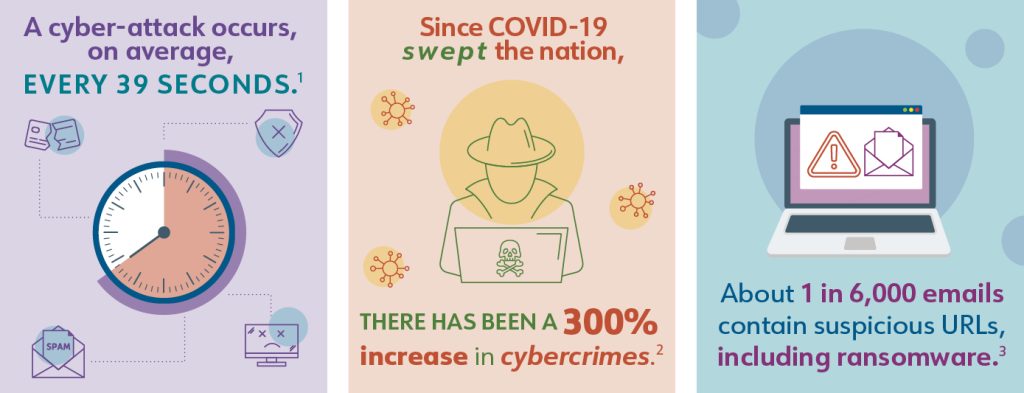
Being cybersafe is the practice of proactively protecting your identity and safeguarding your world.
 Here are 5 ways to help you protect yourself and your assets.
Here are 5 ways to help you protect yourself and your assets.
1. Play hard to get – monitor your accounts
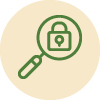 When you regularly log in to your account, at abaretirement.com, you can monitor activity and know when there is an issue. You can also practice safe computing by registering your account for auto asset protection and account restoration with the Voya S.A.F.E. Guarantee program. Under this program, if any assets are taken from your workplace retirement plan account due to unauthorized activity and through no fault of your own, Voya will restore the value of your account subject to satisfying a few key steps. This guarantee may be void if you share your account passwords with others.
When you regularly log in to your account, at abaretirement.com, you can monitor activity and know when there is an issue. You can also practice safe computing by registering your account for auto asset protection and account restoration with the Voya S.A.F.E. Guarantee program. Under this program, if any assets are taken from your workplace retirement plan account due to unauthorized activity and through no fault of your own, Voya will restore the value of your account subject to satisfying a few key steps. This guarantee may be void if you share your account passwords with others.
2. Safeguard your devices
 It’s a good idea to manage your computers and cell phones by making sure you have an auto lock on your screens, reboot each device every evening for software updates and ensure your devices have a privacy screen to reduce the risk of ‘shoulder surfing’ by prying eyes. Be sure to use a camera cover on your laptop when not in use and never leave your laptop unattended especially in public. Refrain from logging into financial accounts or using passwords on unsecure public networks commonly found in coffee shops, libraries and airports as this is used most often by cyber criminals to ‘surf’ for personal information.
It’s a good idea to manage your computers and cell phones by making sure you have an auto lock on your screens, reboot each device every evening for software updates and ensure your devices have a privacy screen to reduce the risk of ‘shoulder surfing’ by prying eyes. Be sure to use a camera cover on your laptop when not in use and never leave your laptop unattended especially in public. Refrain from logging into financial accounts or using passwords on unsecure public networks commonly found in coffee shops, libraries and airports as this is used most often by cyber criminals to ‘surf’ for personal information.
3. Secure your home network
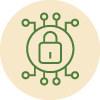 Locking down your home network includes having the latest firmware installed for Wi-Fi routers, switches, cable modems and firewalls. Create a strong password to protect your router or cable modem and inform only trusted family members. You can also use Wi-Fi protected access encryption protocols such as WPA2 or WPA3 to block hackers.
Locking down your home network includes having the latest firmware installed for Wi-Fi routers, switches, cable modems and firewalls. Create a strong password to protect your router or cable modem and inform only trusted family members. You can also use Wi-Fi protected access encryption protocols such as WPA2 or WPA3 to block hackers.
4. Protect your passwords and PINs
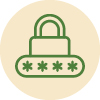 Start with strong passwords across all of your devices, but be sure not to duplicate or use them with websites or applications. It’s also a good idea to avoid using personal information such as names or birthdates, change your password often and always keep confidential. Avoid using your debit card at stores or other public venues where a PIN is required to be used.
Start with strong passwords across all of your devices, but be sure not to duplicate or use them with websites or applications. It’s also a good idea to avoid using personal information such as names or birthdates, change your password often and always keep confidential. Avoid using your debit card at stores or other public venues where a PIN is required to be used.
5. Beware of phishing, phone scams and spam email
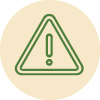 Cyber criminals are always developing new tactics to get personal data through emails, texts, and phone calls. A good measure of common sense is needed when a scam presents itself and always trust your gut. If it doesn’t seem right, it probably isn’t.
Cyber criminals are always developing new tactics to get personal data through emails, texts, and phone calls. A good measure of common sense is needed when a scam presents itself and always trust your gut. If it doesn’t seem right, it probably isn’t.
This list is by no means exhaustive and there are many ways cyber criminals can try to access your personal information. Remember, being cybersafe is the practice of proactively protecting your identity and safeguarding your world – so you can preserve your identity and stay healthy financially.
Please see the full S.A.F.E. Guarantee at go.voya.com/datasecurity for more information.


